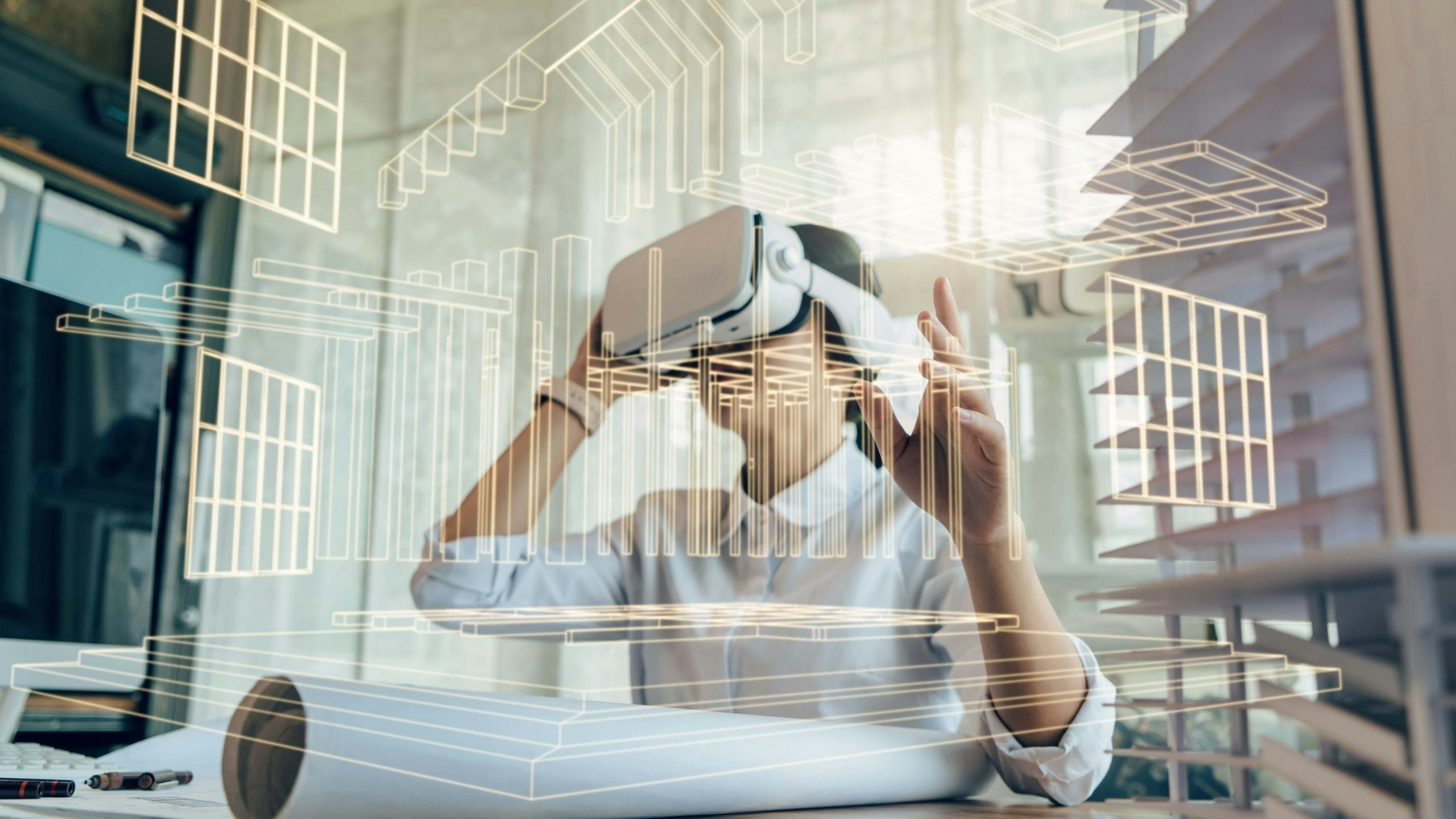2022 saw ChatGPT's explosive debut, igniting buzzy discussions across various industries. Innovative technologies like artificial intelligence (AI), blockchain, and the metaverse have started to shape “real” business, including commercial property developments.
To explore the extensive possibilities in real estate, Jing Daily collaborated with leading real estate company Jones Lang LaSalle (JLL) and Web3/metaverse brand consultancy LABS3.io to launch the NEXTech Roundtable on April 27. The virtual discussion focused on the impact of Web3 and metaverse technologies on commercial real estate and the opportunities they will bring the industry.
Moderated by Wenzhuo Wu, Managing Editor at Jing Daily China, the webinar featured a conversation between Vincent Wong, Director of Operations at LABS3.io, and three panelists: Lou Chen, Senior Director, Proptech & Innovation Lead, Greater China, JLL; Simon Chen, Founder and CEO of architectural design firm X_Lab and metaverse architectural firm Mortise_Labs; and Sandy Jin, Founder and CEO of metaverse platform Vland. They shared their insights and predictions on digital trends in the commercial property sector, with a focus on virtual building design and social interaction in the metaverse.
Here are Jing Daily’s top four takeaways from the roundtable.
Artificial intelligence, blockchain and the metaverse are changing the landscape of commercial real estate#
The rise of AI-generated content (AIGC) programs such as Midjourney and ChatGPT has stirred worries about whether AI will replace human labor. Nevertheless, concerning architectural design, Chen opined that AI currently functions more as a tool to assist designers. With the threshold of code writing, the architect profession will not disappear in the future, but will instead metamorphose into a role of AI code writing.
When it comes to virtual service platforms, Jin inferred that customers are more concerned about the role of non-player characters in games (NPCs) in the metaverse, based on customer and market feedback.
“Traditionally, it requires interaction with users to maintain the operation of a space for a long period of time, which incurs certain costs if it is done by real people," Jin explained. "But with the help of AI, NPCs can play the customer service or guide role, thus significantly reducing such costs."
As Wong concluded, "These technologies serve as both production tools and potential cost-savings mechanisms for companies."
The COVID-19 pandemic has accelerated the adoption of virtual technology#
The pandemic expedited the advancement of startups like VLand and Mortise Labs. In the post-pandemic era, numerous companies have employed a hybrid work model that combines virtual and physical spaces, owing to the advantages of virtual spaces such as low cost and eco-friendliness. In this context, what is the role of physical space today, and why is it still needed?
"The workplace today is no longer just a place for typing or creating presentation decks. It's a place for employees to communicate and engage with each other — a social space. Consequently, the nature of the office has undergone a transformation. Hence, only those companies that prioritize their employees can attract more talent to join," noted Lou.
"The workplace today is no longer just a place for typing or creating presentation decks. It's a place for employees to communicate and engage with each other — a social space. Consequently, the nature of the office has undergone a transformation."
In terms of commercial real estate, Lou held that given the lag in the real estate industry, “by the time a commercial product is completed, it may already be disconnected with users. Adapting to today's diverse customer requirements is an urgent issue facing the commercial real estate sector.” With the use of new technologies like image recognition that shorten the product design cycle, the real estate industry can expect more efficient solutions that cater to the specific needs of various consumers in the future.

Virtual technology informs more valuable use of physical space#
Due to technological constraints, it is still necessary for users to rely on hardware devices to facilitate interaction between virtual and real worlds. Also, as there is currently no lower-cost usage scenario, live streaming is predominantly used to bridge online and offline experiences. Nevertheless, virtual technology has already delivered considerable benefits to commercial real estate.
According to Jin, virtual spaces can better capture user movements than physical spaces, such as the time users spend in an area, the content they view, and other interactive actions, which can then be provided as valuable data to clients.
Wong observed that while the popular belief is that the metaverse equals the virtual world, it is not a space but rather an era where there is no longer any barrier between online and offline. “When e-commerce was initially taking off, many believed it spelled the end of brick-and-mortar stores. However, what we see now is that these stores are thriving because they offer more than just a place to purchase goods."
In fact, the advent of e-commerce and the internet has instead compelled businesses to devote greater attention to their physical locations, creating engaging experiences that attract consumers.
The future of virtual commercial property depends on content-building#
Housing prices in real life are determined by the scarcity of land resources. In contrast, in the virtual world where resources seem unlimited, how does one go about assessing the value of virtual real estate? According to Chen, the value of virtual real estate is based on computing power — that is, the capacity for processing information and generating desired results — which is a scarce and limited resource.
In essence, real estate developers privatize limited resources, upon which they superimpose commercial value. The so-called real estate developers in the virtual world, as Lou viewed it, are a different breed from their real-world counterparts. "I don't think real estate developers in the traditional sense will become real estate developers in the metaverse. Their business behaviors remain the same. It's just the roles that will change."
Following Lou’s argument, Jin offered a different perspective, suggesting that future virtual-world real estate developers will likely be gaming or content companies. Online computing power may have limitations, but it's still far less expensive than real-world land. Essentially, it has a relatively unlimited carrying capacity, or at least is a means to lower expansion costs. Be it brand operation or content building through gaming or content companies, the core focus continues to be engaging users.

As the roundtable concluded, the participants envisioned the impact the metaverse will have on the future social ecosystem. "The key to the development of digital technology lies in tackling social problems, easing life burdens, enriching people's existence, and transcending the confines of material pursuits," Chen said.
As AI becomes more widespread and lowers the entry barrier to content creation, Jin predicts a mutual transformation between content creators and consumers in five to 10 years. “Users, AI agents and brands will coexist in the metaverse, culminating in a content co-creation ecosystem that fosters collaboration and interconnectivity.”
The ongoing evolution of Web3 and metaverse technologies will lead to the continuous improvement of the commercial real estate industry's development models in the future, enabling it to deliver a greater diversity of services and experiences to consumers. This will simultaneously broaden the industry's horizons, creating a wealth of continuous business opportunities for the market.

